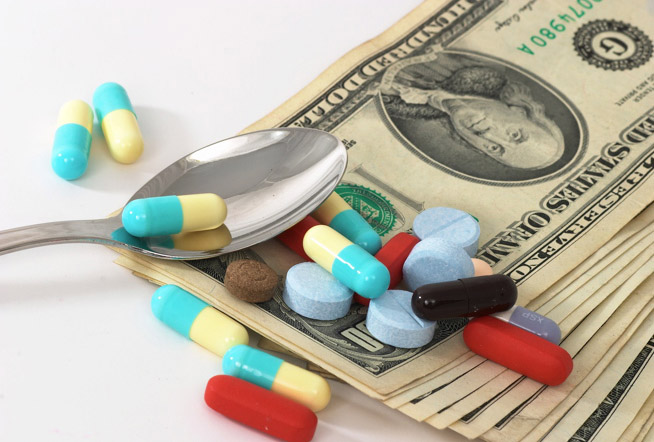Statin drugs used to fight cholesterol actually HARM your health, say experts
10/28/2020 / By Cassie B.

When a doctor tells someone that their cholesterol levels are high enough to warrant a prescription for statins, many people are more than willing to comply in hopes of avoiding a heart attack. Statins are the second-most prescribed drugs on the planet, and one out of every five Americans aged 40 to 75 takes these drugs on a regular basis. Although doctors hand out prescriptions for statins like it’s not a big deal, this is one case where it is best to avoid emotional reactions and spend some time researching the situation very carefully.
Unfortunately, the statins used to fight cholesterol can actually harm your health quite significantly, and they don’t quite offer the benefits many people expect. In fact, explaining all the ways these drugs can put your health in danger goes beyond the scope of this article as at least 300 adverse health effects have been revealed in published literature so far. Some of the major categories include damage to the muscles, nerves and liver, endocrine disruption, cardiovascular damage and birth defects in addition to raising your risk of cancer and diabetes.
Myopathy, or muscle breakdown and pain, is one of the more well-known side effects of these drugs, affecting up to 40 percent of patients within the first month of treatment. Several trials have shown statistically significant rises in cancer incidence and deaths. In particular, the greater risk of breast cancer associated with these drugs means that women need to be extra careful with them.
Studies have also shown that statins can raise people’s risk of Type 2 diabetes. Doctors have long been aware of the connection, but many tend to attribute it to the fact that those taking statins often have more risk factors for diabetes in the first place. However, more recent studies have shown that the risk is indeed related to the use of these drugs. One study found that they can cause post-menopausal women’s diabetes risk to rise by 71 percent, even after making adjustments for other factors that might influence their diabetes risk such as body mass index, age and ethnicity.
The rise in Alzheimer’s disease that is being seen right now just as more Americans than ever are taking statins may be more than a coincidence. High cholesterol levels can actually protect elderly people against dementia and the inverse is also true; low cholesterol levels are linked to a higher risk of dementia. Memory loss is one of the documented side effects of statins, which reduce the body’s production of CoQ10, a nutrient that protects the brain and the heart. CoQ10 deficiency is also behind the muscle pain and fatigue that many of those taking statins experience.
Keep your heart healthy naturally
Of course, there is no reason that anyone has to choose between potentially having a heart attack or suffering from the many side effects and risks of statins. There are several natural ways that you can improve your heart health that might require a bit more effort than taking a pill but can reap tremendous benefits in all areas of your physical and mental health. For example, physical exercise is a great way to improve your heart health. Start getting more active or increase the intensity of any activity you are doing already if your cholesterol numbers are concerning.
Yoga is another great way to enhance your heart health. You can also increase your intake of foods known to help fight high cholesterol, such as oats and fiber-rich foods. At the same time, it is important to avoid processed foods.
Unfortunately, statins are huge money maker for Big Pharma, and recent changes to the guidelines have broadened the definition of “high cholesterol” and mean many more Americans than before are being prescribed these drugs. The many potential drawbacks of these drugs, paired with their rather questionable benefits, should have everyone seeking alternative ways of keeping their heart in top shape.
Sources for this article include:
Tagged Under: Alzheimer's disease, Big Pharma, cholesterol, health science, heart health, Prescription drugs, statins, Type 2 Diabetes
RECENT NEWS & ARTICLES
PrescriptionWarning.com is a fact-based public education website published by Prescription Warning Features, LLC.
All content copyright © 2018 by Prescription Warning Features, LLC.
Contact Us with Tips or Corrections
All trademarks, registered trademarks and servicemarks mentioned on this site are the property of their respective owners.



















